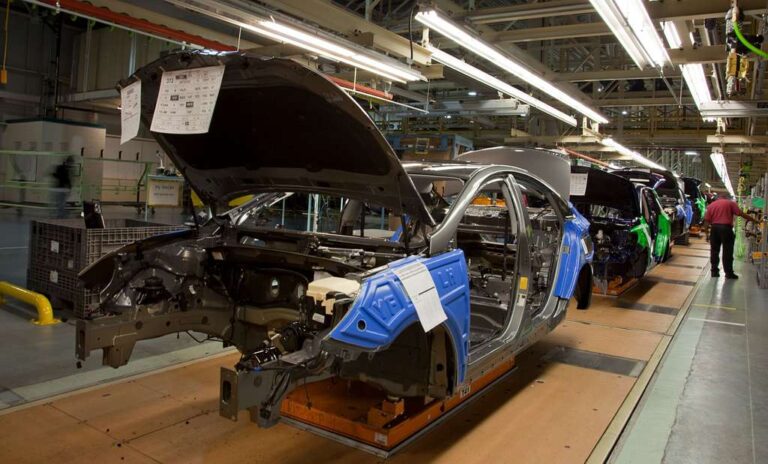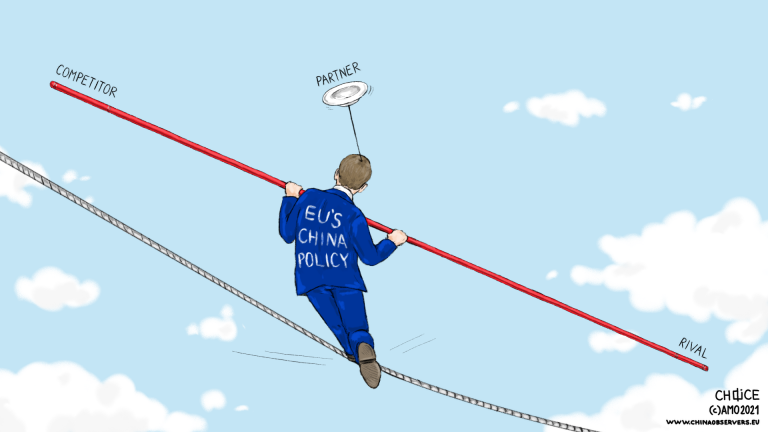
Beijing’s main interest in strengthening relations with Budapest is not about Hungary itself but about Europe as a whole. A friendly EU member means opportunities to shape EU-China economic and political relations more in the CCP’s favor. The long list of strategic sectors in which the two sides signed cooperation agreements during Xi’s Budapest visit should be a concern for other EU and NATO states.
According to Chinese government reports, China and Hungary signed 18 bilateral agreements during Xi Jinping’s May visit to Budapest. The agreements were concluded mostly between Hungarian ministries and state agencies and their Chinese counterparts. The list of the inked deals starts with a tally of the third round of Belt & Road Initiative (BRI) projects to be jointly realized. Also included are cooperation agreements in infrastructure development, supply chain management, nuclear energy, agriculture, and media, among others. Hungarian government sources on the meeting emphasized cooperation agreements in infrastructure and energy, including projects aimed at improving connectivity with fellow Beijing-friendly Serbia.
Energy and Infrastructure as Key Priorities
In Hungary’s Foreign Minister, Péter Szíjjártó’s words, “historical agreements were reached during this historical visit.” As Szíjjártó pointed out, the major newly announced Chinese investment projects, such as the EV battery mega-factory in Debrecen and BYD’s recently announced plant in Szeged are mostly located in the country’s east. A Chinese-Hungarian cooperation to build a railway line bypassing Budapest towards the West – the direction of most future exports – is therefore necessary, as Szíjjártó’s explains. The Hungarian foreign minister also noted the need to significantly increase Hungary’s energy production, for which a “cooperation program” with China is designed, targeting the “whole spectrum” of Hungary’s nuclear industry.
Improving connectivity with neighboring Serbia, another stop of Xi Jinping’s recent Europe trip, also comes up in the Hungarian government’s report on the bilateral agreements. As mentioned by Szíjjártó, the Hungarian government, together with its Chinese partners, will examine the possibilities of building an oil pipeline between Hungary and Serbia as soon as possible, in order to provide energy security for the two countries and the region as a whole. According to the same report, China will also be involved in modernizing the largest motorway border crossing between Hungary and Serbia (also a Schengen external border). These plans fit well with Beijing’s BRI vision of turning the Balkans and Hungary into a gateway for Chinese products between the Mediterranean and Western Europe.
As for Chinese reports, apart from the Chinese-language list of the concrete agreements between the two governments, an English-language “joint statement” is also available on the Chinese Foreign Ministry’s website. The statement elaborates in 21 points the elevation of the “comprehensive strategic partnership” between China and Hungary to an “all-weather comprehensive strategic partnership for the new era.”
As pointed out by some analysts, “all-weather friendship” is a designation rarely used by the Chinese leadership to describe its relations with foreign states. While several other EU countries have already earned the “comprehensive strategic partner” designation, the relations with Hungary are at this point closer to how Beijing frames its relations with Russia and Pakistan.
The 21 points of the joint statement go through most of the various fields in which bilateral agreements were signed during Xi’s visit. It is notable that the document also emphasizes Beijing’s “commitment to the development of China-EU comprehensive strategic partnership.” Unlike during Xi’s preceding stop on his European tour in Belgrade, where Xi and Vučić pledged to build together the “community of shared destiny” (a slogan coined by Xi about 10 years ago), there was no talk of any joint “community” in the Hungarian capital.
Hungary’s relations with China, just like those of most other European countries, are characterized by a high trade deficit to China’s advantage. The outcomes of Xi’s latest trip do not indicate that this will significantly change in the near future. It was, nevertheless, important for Budapest to at least create an appearance that Hungary’s small and medium enterprises will benefit from more export opportunities to China. This is suggested by the emphasis on granting export licenses to Hungarian cherries and cattle semen in the list of bilateral agreements. Three bilateral agreements relate to agreements between the PRC’s General Administration of Customs and Hungary’s Ministry of Agriculture. One of them refers to a “memorandum of understanding” on cooperation in quarantine regulations of animal and plant exports and imports. Two of them refer to “protocols” on health and quarantine requirements for Hungarian cherries and cattle semen exports to China.
Improving EU Perceptions of China
Interestingly, four out of the 18 signed agreements are related to media cooperation. The entities involved here include Xinhua, People’s Daily, and the China Media Group (CMG) on the Chinese side, and Hungary’s state-owned Media Services and Support Trust Fund (MTVA), as well as the Hungarian Tourism Agency on the Hungarian side. The plans for the media cooperation agreements were already laid out during a meeting between Xinhua’s president and Hungary’s Minister for National Economy one week prior to Xi’s visit.
The deals between Hungarian ministries and major CCP-controlled media outlets indicate Beijing’s intention to shape public discourses in Hungary. They also showcase the Hungarian government’s willingness to adopt and disseminate CCP-promoted narratives about China and its global role. Meanwhile, the Chinese government’s quest to mold Hungary’s perceptions of China is probably part of a bigger plan to reshape EU views. As reported in the Chinese government sources about the meeting between Xi and Orbán, the Chinese leader expressed his support for Hungary “playing a bigger role in the EU and promoting greater progress in China-EU relations.”
“Win-win,” at least for the Ruling Elites?
Xi Jinping’s 2024 Europe trip was motivated by the desire to maintain positive ties with Europe in the context of intensifying China-US global geopolitical rivalry. Choosing Hungary as one of his three destinations during the trip did not come as a surprise, due to the Hungarian leadership’s prominent Beijing-friendly attitudes in recent years. The official documents related to Xi’s Budapest visit indicate that Hungary is important for China primarily for its role as an entry point to the EU. This “gateway” role, understood in a physical sense, relates to Hungary’s welcoming attitude towards Chinese investment, lately, especially in the EV sector where the Chinese companies are facing threats of tariffs and are thus seeking to localize production within the bloc. In a more abstract sense, Hungary’s gateway role has the potential to shape EU discourses in Beijing’s favor, especially during the country’s upcoming EU Council presidency from July 2024.
In official Chinese statements, the Budapest visit has been framed as part of a broader effort to improve relations with the EU. Unlike in the case of the visit to non-EU member Serbia, where building the CCP-promoted “community of shared destiny” was invoked, no talk of a “community” appears in the Chinese official discourse around the Budapest meeting. This shows that the Chinese leadership is aware of EU members’ suspicions about Beijing’s divisive tactics in bilateral dealings with member states.
From the Hungarian government’s perspective, friendly attitudes toward Beijing seem to be paying off in terms of an exponential rise in Chinese investments in the country. This comes at a time when the frozen EU cohesion funds are increasingly unlikely to be released any time soon and Orbán’s government finds itself in dire need of alternative sources of income. Whereas major government-linked infrastructural companies are likely to make gains from the new round of Chinese investments, it remains to be seen how much SMEs and the general population will benefit.
While Chinese investments in the EV sector are welcome in other EU countries as well, especially in the other Visegrád 4 countries (with the exception of Czechia) due to their heavy reliance on the car industry, Hungary’s increasingly close cooperation with China in a number of strategic sectors should be a concern among other member states. In recent months, including during Xi’s latest visit, the two countries signed a wide range of cooperation agreements involving as law enforcement, media, nuclear energy, oil pipelines, and border infrastructure. It is increasingly clear that Beijing’s influence over Budapest constitutes a strategic risk for other EU and NATO member states. Whether and how Brussels will move to address this is still uncertain.
Written by
Sebestyén Hompot
HompotSebestyenSebestyén Hompot, Ph.D., was born in Hungary and currently works at the Prague University of Economics and Business (VŠE) as a Researcher in the Horizon EU Project "European Hub for Contemporary China" (EuroHub4Sino), focusing on "China's multilateral institutions/frameworks and global governance." Hompot is also a Research Fellow at the Bratislava-based, transnational think tank Central European Institute of Asian Studies (CEIAS).

